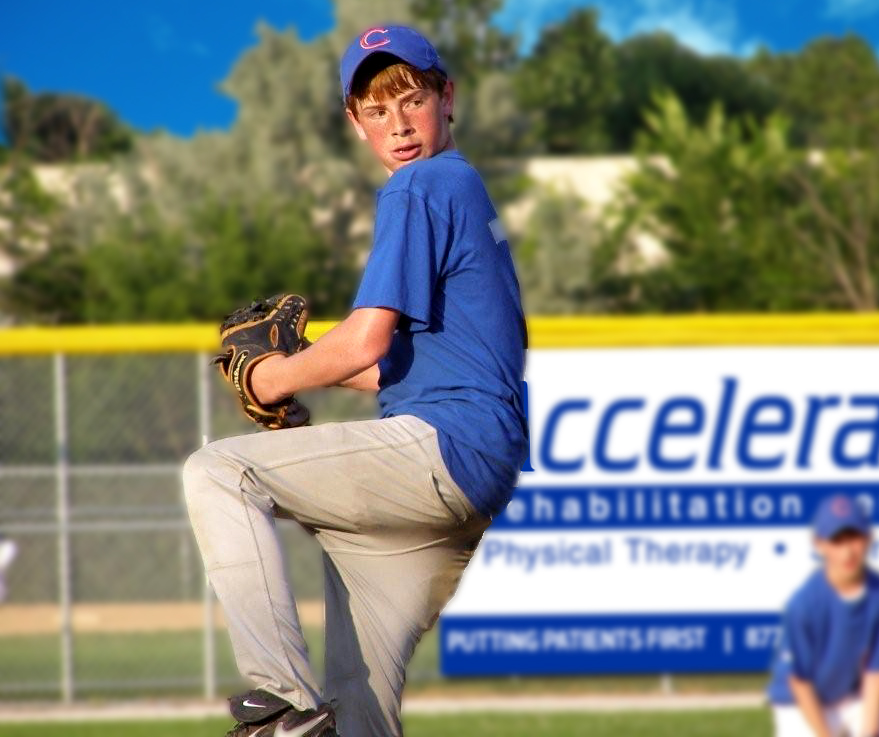
The most in-depth survey of its kind
found that arm pain is common among supposedly healthy young baseball
players and nearly half have been encouraged to keep playing despite arm
pain. The findings suggest that more detailed and individualized
screening is needed to prevent overuse injury in young ballplayers. The
study, led by Columbia University Medical Center (CUMC) researchers, was
published in the online edition of the American Journal of Sports Medicine.
"Both nationally and internationally, we're witnessing a troubling
increase of elbow and shoulder injuries in young baseball players," said
study leader Christopher S. Ahmad, MD, chief of sports medicine and
professor of orthopedic surgery at NewYork-Presbyterian/Columbia and
head team physician for the New York Yankees. "The likely explanation is
that they're throwing too much, too early, putting increasing demands
on their bodies that their bodies are not ready for. Despite current
guidelines and precautions - for example, limiting pitch counts and
emphasizing off-season rest - many players are still sustaining overuse
injury to their throwing arm. Thus, it's vital that we develop better
ways for coaches, parents, and clinicians to identify players at risk so
we can prevent irreversible injury and season-ending surgery."
As a first step toward this goal, Dr. Ahmad and his colleagues designed a
questionnaire to learn more about the frequency, severity, and
psychosocial effects of arm pain among active adolescent baseball
payers. The questionnaire was completed by 203 players from New York and
New Jersey between the ages of 8 and 18. All of the surveys were
completed without input from parents or coaches.
Among the survey's findings was that 74 percent of players reported
having arm pain while throwing (answering that they "always," "often,"
"sometimes," or "rarely" experienced arm pain). Just 26 percent said
they "never" had arm pain while throwing.
The study also found that:
- 80 percent reported having arm pain the day after throwing.
- 82 percent reported arm fatigue during a game or practice.
- 54 percent reported that arm pain limited the number of innings they could play.
- 75 percent reported that arm pain limited how hard they could throw.
Pitchers, compared with infielders and outfielders, were especially
likely to have played with pain. One-quarter of pitchers reported that
they "often" or "always" had pain the day after throwing. "These
pitchers likely represent one of the higher-risk groups for incurring a
future overuse injury and thus warrant particularly high monitoring,"
said Dr. Ahmad.
Almost half (47 percent) of players reported that they had been
encouraged to continue playing in a practice or game even though they
were having pain. One in eight players aged 17 to 18 reported that they
"always" felt encouraged to continue playing despite having arm pain. A
majority of players reported that arm pain caused them to experience
less enjoyment while playing and that it was responsible for holding
them back from being a better player.
"It's alarming that so many young baseball players are encouraged to play with pain," said Dr. Ahmad. "Years ago, prior to concussion
protocols, we observed something similar in football, where players who
suffered a concussion were routinely sent back into the game after
'recovering' for a few minutes. The initial concussion lowered the
threshold for another concussion, and the repeated concussions put the
player at risk for permanent damage. I think we're seeing a similar
problem in baseball, where playing with arm pain is setting the stage
for more serious injury."
Dr. Ahmad suspects that this phenomenon has contributed to the recent
rise in "Tommy John" surgeries among college and professional baseball
players. ("Tommy John" surgery is the colloquial name for reconstruction
of the elbow's ulnar collateral ligament. The procedure was named after
the former Los Angeles Dodgers pitcher, who was the first to undergo
this repair in 1974.)
According to Dr. Ahmad, current precautions and guidelines are
inadequate for preventing injury. "It's not enough to set pitch counts
based on a player's age," he said. "While some 14 year olds are already
quite mature, in terms of their skeletal structure, others haven't even
started their growth spurt yet. We need to come up with more
individualized throwing programs and better ways to detect which players
are at risk for injury." Dr. Ahmad is currently investigating the use
of ultrasound for correlating arm pain with tissue damage.


No comments:
Post a Comment